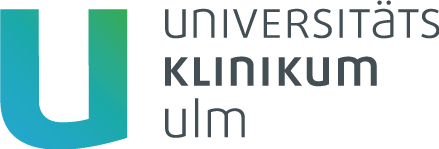The Martins’s laboratory at the Institute of Immunology of the University Hospital Ulm is recruiting to start as soon as possible
a Graduate (PhD) Student (f/m/d)
The University Hospital Ulm and its employees stand for a modern and high quality patient care, excellent university research and medical education focused on the future as well as apprenticeships in attractive professional fields. The requirements for this are qualified and committed employees.
We are seeking a highly motivated person, passionate for science, eager to learn and solve problems. The candidate must have personal competences to work in a laboratory-based environment, good inter-personal skills and high degree of initiative. Highly motivated candidates must hold a MSc in Molecular Medicine, Biochemistry, Biology, or related areas. The candidate is required to work with and run animal experimentation using the mouse as the model organism. Experience with techniques related to mouse handling (breeding, weaning, injections) is therefore advantageous, but not required. Previous lab experience in flow cytometry is also an advantage. Fluency in English (written and spoken) is required.
Research in the Martins lab aims at understanding the mechanisms regulating early T lymphocyte development and T lymphocyte malignancies. Normal T lymphocyte development relies on the import of hematopoietic progenitors that originate in the bone marrow and seed the thymus. There, these progenitors commit to the T lymphocyte lineage and further differentiate in a process with very high cellular turnover. We found that thymus turnover is regulated by cell competition and that if this process is impaired T cell acute lymphoblastic leukemia can develop. This is a novel area of research where much is still unknown and for which we aim to contribute with a solid research program. It is important that the successful candidate is interested in immunology and leukemia.
The candidate will be expected to spend some time abroad as part of training. Specifically, the PhD candidate will spend some months at the Medical Faculty of Lisbon, in Portugal, that uses several infrastructures of the Gulbenkian Institute of Molecular Medicine.
Research in the Martins lab aims at understanding the mechanisms regulating early T lymphocyte development and T lymphocyte malignancies. Normal T lymphocyte development relies on the import of hematopoietic progenitors that originate in the bone marrow and seed the thymus. There, these progenitors commit to the T lymphocyte lineage and further differentiate in a process with very high cellular turnover. We found that thymus turnover is regulated by cell competition and that if this process is impaired T cell acute lymphoblastic leukemia can develop. This is a novel area of research where much is still unknown and for which we aim to contribute with a solid research program. It is important that the successful candidate is interested in immunology and leukemia.
The candidate will be expected to spend some time abroad as part of training. Specifically, the PhD candidate will spend some months at the Medical Faculty of Lisbon, in Portugal, that uses several infrastructures of the Gulbenkian Institute of Molecular Medicine.
 Contract: limited
Contract: limited
 Level of employment: part-time
Level of employment: part-time

